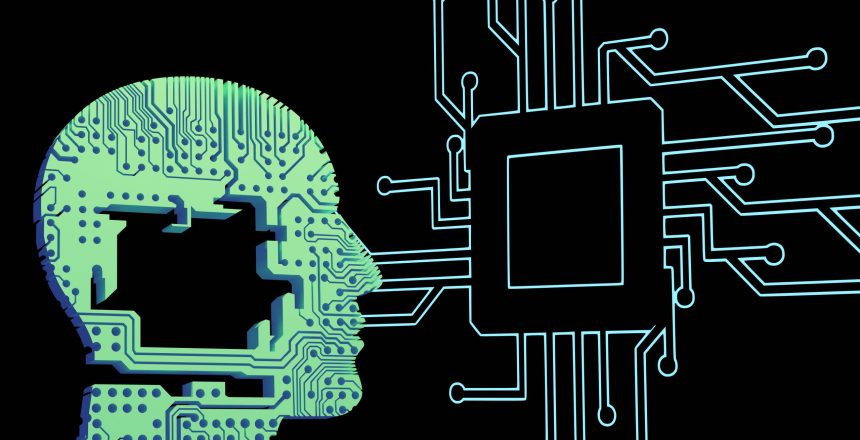Programmatic advertising has seen a phenomenal evolution over the last decade. At its core, it involves the automated buying and selling of online advertising, making the entire advertising process more efficient and precise. Unlike traditional methods that involve human negotiations and manual insertion orders, programmatic advertising leverages machine learning to purchase display space.
However, the real game-changer in programmatic advertising as of late has been the introduction of Artificial Intelligence (AI). Over 80% of advertising experts have already integrated AI into their online marketing activities. AI’s role in programmatic advertising cannot be overstated. It enables marketers to target audiences more accurately, optimize campaigns in real-time, and achieve higher returns on investment.
Understanding Programmatic Advertising
Programmatic advertising operates in a systematic and streamlined manner. The process begins with a user visiting a website that has ad spaces. The website owner sends the user’s information, such as demographics and browsing behavior, to an ad exchange platform. This ad exchange is a marketplace where advertisers bid for the available ad spaces in real-time.
This is where artificial intelligence steps in. AI algorithms analyze the user’s data against the advertisers’ criteria to determine which ads would be most relevant. The ad of the highest bidder is then displayed on the user’s screen, all in the blink of an eye. This workflow, powered by AI, ensures that the right ad reaches the right user at the right time, making programmatic advertising a powerful tool in the digital marketing space.
Need for Automation in Advertising
Businesses today rely on digital marketing to connect with their target audience. However, marketers face challenges of scale and efficiency as the digital landscape expands. The multitude of channels and platforms, from social media to websites and apps, creates the daunting task of ensuring consistent and relevant messages across various outlets.
Efficiency is a critical concern with the number of digital ad spaces and a growing user base. The traditional manual approach is time-consuming, labor-intensive, and prone to errors, making it inefficient in a fast-paced digital environment. This establishes the importance of automation in digital marketing.
Combining programmatic advertising with artificial intelligence addresses these challenges. AI’s capabilities regarding analysis and decision-making enhance ad targeting, enable real-time optimization, and achieve a larger scale with fewer resources. This integration provides an effective solution to the common scale and efficiency challenges that all marketers face.
Targeting and Personalization in Modern Digital Advertising
In the digital era, targeting and personalization are crucial for meeting consumer expectations with content relevant to them. With users bombarded by information daily, brands must personalize their content to cut through the noise and engage potential customers.
Artificial intelligence plays a pivotal role in this level of customization by processing sets of data, including user demographics and preferences, to deliver personalized ad content based on user information, giving marketers content tailored specifically to their target audience.
AI also enhances ad targeting by allowing brands to segment their audience based on parameters like age, location, interests, and online behavior, ensuring ads reach individuals most likely to be interested, increasing conversion rates and maximizing ROI in return.
Additional Benefits of AI
AI not only ensures precise audience targeting but also adeptly chooses the right ad format and timing, optimizing user engagement. By swiftly evaluating thousands of ad bids in real-time, AI identifies the most cost-effective opportunities, allowing marketers to enhance campaign results while maintaining cost efficiency.
Additionally, AI’s real-time optimization capability empowers marketers to analyze campaign performance instantly, making dynamic adjustments such as refining targeting criteria, adjusting bid amounts, and reallocating budgets across channels. This continuous optimization guarantees improved campaign performance and maximized return on investment.
Challenges and Considerations of AI
While AI offers significant advantages in programmatic advertising, it’s important to acknowledge the associated challenges and considerations, such as data privacy and ethics, ad fraud, and data safety.
Data privacy and ethics are key considerations in AI-driven programmatic advertising. As AI algorithms are given access to vast amounts of personal data, there’s an ongoing debate about the ethical implications of this practice. The use of personal data raises privacy concerns, with questions over how data is collected, stored, and used, and whether user consent is appropriately obtained. Advertisers and marketers must ensure they adhere to data privacy laws and ethical guidelines to maintain consumer trust and avoid legal repercussions.
Ad fraud is another significant issue in the digital advertising industry, and AI in programmatic advertising is not immune. Fraudsters use sophisticated bots to mimic human behavior and generate fake ad impressions and clicks. This inflates the perceived success of a campaign and leads to wasted advertising spend. Therefore, AI algorithms need to be equipped with fraud detection capabilities to identify and mitigate such fraudulent activities.
Data safety is also a critical concern. With the vast amount of data processed in programmatic advertising, safeguards must be in place to protect it from breaches and unauthorized access. Ensuring data security is crucial to maintaining the integrity of AI-driven programmatic advertising.
The Future of AI in Advertising
Artificial Intelligence has undeniably revolutionized programmatic advertising. It has led to superior targeting, enhanced efficiency, and real-time optimization of ad campaigns, all while addressing the growing need for personalization in digital advertising. However, it’s equally important to consider the ethical connotations of data usage, potential ad fraud, and data safety measures while adopting AI for programmatic advertising.
The future of programmatic advertising will only become more interwoven with AI as technology continues to advance. We anticipate further enhancements in ad targeting, real-time adjustments, and efficiency gains. Data privacy and ad fraud countermeasures will likely evolve in tandem, powered by advancing AI capabilities.
The integration of AI in programmatic advertising holds boundless potential for the continuous evolution of the digital marketing landscape. BRIDGE is ready to elevate your digital marketing strategy with AI-powered programmatic capabilities, connecting with verified individuals in your target audience at no risk of ad fraud. Unlock the full potential of programmatic advertising – reach out to BRIDGE today to redefine your approach and stay at the forefront of innovation and audience engagement.







